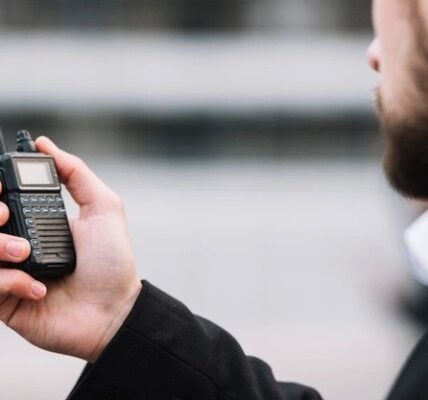Evaluating the success of event security measures is critical to ensuring the safety and well-being of attendees, staff, and participants. This comprehensive process involves assessing various aspects of security planning, implementation, and response to determine effectiveness and identify areas for improvement. In this article, we’ll delve into the key components of evaluating event security measures and provide insights into best practices for conducting thorough evaluations.
1. Pre-Event Planning and Risk Assessment:
Before an event takes place, security teams conduct comprehensive risk assessments to identify potential threats and vulnerabilities. Evaluating the success of this phase involves examining the thoroughness of the risk assessment process, including the identification of potential risks such as crowd size, venue layout, and specific event activities.
2. Security Plan Execution:
A well-developed security plan is essential for effective event security. Evaluating the success of security plan execution involves assessing how well security protocols were implemented before, during, and after the event. This includes evaluating the deployment of security personnel, access control measures, and communication systems.
3. Crowd Management and Control:
Crowd management is a critical aspect of event security, particularly for large gatherings. Evaluating the success of crowd management measures involves assessing how effectively security personnel controlled crowd flow, mitigated overcrowding, and responded to incidents such as crowd surges or disturbances.
4. Response to Incidents:
Despite thorough planning, incidents may still occur during events. Evaluating the success of event security measures includes assessing the timeliness and effectiveness of responses to incidents such as medical emergencies, disturbances, or security breaches. This evaluation considers factors such as response times, coordination among security personnel, and the resolution of incidents.
5. Communication and Coordination of Event Security:
Effective communication and coordination among security teams, event organizers, and relevant stakeholders are crucial for successful event security. Evaluating communication processes involves assessing the clarity, efficiency, and reliability of communication channels used during the event, including radio systems, mobile devices, and inter-agency communication protocols.
6. Access Control and Perimeter Security:
Controlling access to the event venue and maintaining perimeter security are essential for preventing unauthorized entry and ensuring the safety of attendees. Evaluating access control measures involves assessing the effectiveness of entry screening procedures, perimeter fencing, and security checkpoints in deterring threats and managing access to the event.
7. Technology Integration:
Technology plays an increasingly important role in event security, with tools such as video surveillance, biometric identification, and threat detection systems enhancing security capabilities. Evaluating the success of technology integration involves assessing the functionality, reliability, and effectiveness of security technologies deployed during the event.
8. Training and Preparedness:
Well-trained security personnel are essential for effective event security. Evaluating the success of training and preparedness involves assessing the level of training provided to security staff, their proficiency in executing security protocols, and their ability to respond appropriately to various security scenarios.
9. Feedback and Stakeholder Input:
Gathering feedback from attendees, staff, and stakeholders is valuable for evaluating the success of event security measures. This can be done through surveys, interviews, or debriefing sessions to gather insights into their perceptions of security effectiveness, areas for improvement, and any incidents or concerns experienced during the event.
10. Post-Event Review and Analysis:
After the event, conducting a comprehensive review and analysis of security measures is essential for identifying lessons learned and areas for improvement. This involves analyzing incident reports, reviewing security footage, and conducting debriefing sessions with security personnel to identify strengths, weaknesses, and opportunities for enhancement.
In conclusion, evaluating the success of event security services Melbourne measures requires a comprehensive approach that considers pre-event planning, execution, incident response, communication, technology, training, stakeholder feedback, and post-event analysis. By conducting thorough evaluations and implementing continuous improvement processes, event organizers can enhance the effectiveness of security measures and ensure the safety and security of all event stakeholders.





